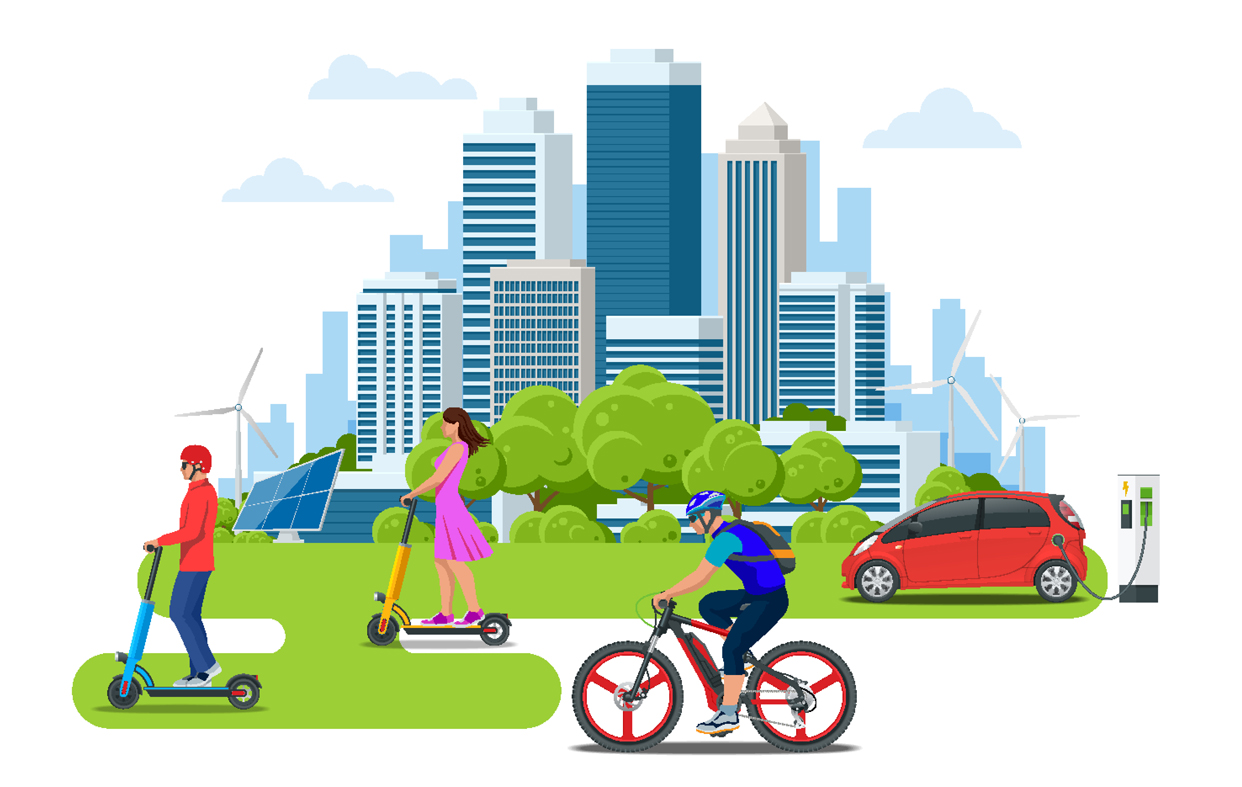
As we enter the era of smart cities, it is timely to inquire whether and how the uptake of alternative mobilities enabled by new technologies (e.g. electric vehicles and bike-sharing) can improve individual health and wellbeing and planetary health. Are we traveling for good? Or are we producing more carbon than before?
This project seeks to understand the link between new mobilities and health and wellbeing at the individual and urban/regional levels with a view to informing urban policymakers and planners on designing and implementing programmes to incentivise people to adopt more sustainable travel behaviours. It will synthesise and evaluate successful and less successful practices around the world, identify the common contributing factors and consequences, and establish a conceptual framework to test the hypothetic link between new mobilities and health and wellbeing.
In the long run, the team also aims to produce an impact case study and undertake empirical research to investigate the influence of various geographical, social, and cultural factors on new mobilities.
The scientific knowledge and research capacity generated will be valuable in informing policymaking, planning and technological innovation to combat climate change and its impacts (SDG #13), and achieve sustainable cities and communities (SDG #11) and good health and wellbeing (SDG #3).
Project Outcomes
Events
Workshop on Practice of Smart Cities and Implications for Urban Planning and Design, 11 Apr 2022
Supported by WUN and the Urban Studies Programme at CUHK, the workshop featured five speakers from industry and academia who shared their works and experiences in smart cities planning and design in different regions, including Japan, India, and China.
Public online workshop – E-Mobility and Future Transport, 2 Nov 2021
The workshop featured scholars of eight universities and organizations, including CUHK and the Universities of Auckland, Bristol, and Leeds, who shared their latest research on electric vehicle, e-scooter, and other emerging transport modes. Revisit the webinar here.
Publications
- He S.Y., Sun K.K., Luo S., Lee J. and Parady G. (2023). The impacts of COVID-19 and social distancing on transport mode usage and travel satisfaction: Evidence from a transit-oriented city. Travel Behaviour and Society, 33, 100617. Link
- Luo S., He S.Y., Grant-Muller S. and Song L. (2023). Influential factors in customer satisfaction of transit services: Using crowdsourced data to capture the heterogeneity across individuals, space and time, Transport Policy, 131, 173-183. Link
- Sun K.K., He S.Y., & Thøgersen J. (2022). The purchase intention of electric vehicles in Hong Kong, a high-density Asian context & main differences from a Nordic context. Transport Policy, 128, 98-112. Link